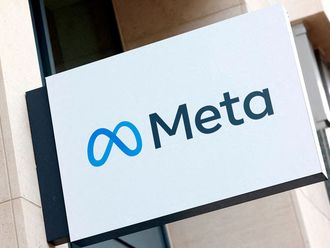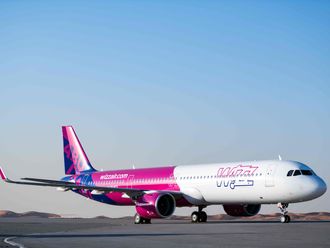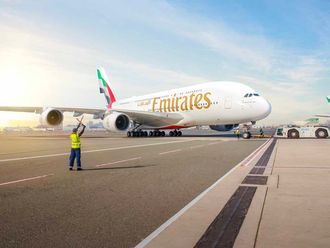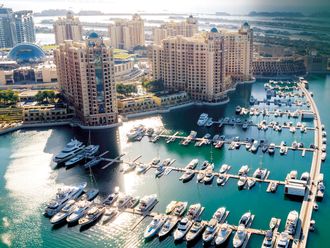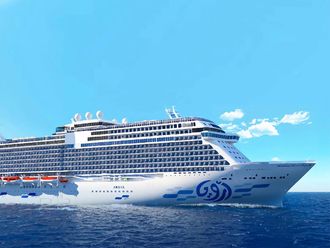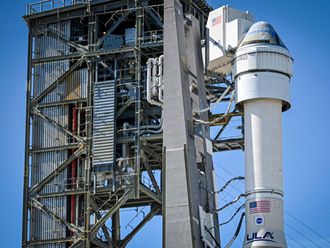Being the king of the road is easy in the Gulf. But, if we are the luckier drivers, Venezuelans are the luckiest. The South American country is known to have the cheapest petrol prices worldwide due to heavy subsidies from Hugo Chavez' government.
Actually, it's even cheaper to fuel one's car there than in Saudi Arabia, Iran and Nigeria, where are well-known for generously subsidising their retail petrol.
Carlos Montes, driver of the public overland bus on the 700-plus-kilometre section between Boa Vista in Brazil and Ciudad Bolivar in Venezuela, smiles when foreigners gaze at the buzzing numbers at the petrol pump while he stops to fill the 450-litre diesel tank of his robust US-made coach.
Refuelling the almost empty tank with 430 litres of diesel does cost not much more than 20 Bolivares Fuertes, Venezuela's reform currency since January 2008, which equals some Dh35 at the official exchange rate.
"Cheap petrol is a matter of course for an oil-rich country like ours," says Carlos. He wags his head being told about the one euro-plus per litre in most European countries and the soaring costs of mobility there.
"If petrol prices rise in Venezuela, the president will fall," he says in a tone of utter conviction. Petrol, he explains, is a commodity like tap water and electricity for all.
"It's like a birthright", he says, pointing out that all the oil pumped from the Orinoco and Maracaibo fields by state-owned Petróleos de Venezuela (PDVSA) "belongs to the Venezuelan people and not to some speculators on Wall Street".
Tourists fuelling their compact rental car will get away with some moderate 4 Bolivares (Dh6.8) for more than 40 litres of 95 octane petrol.
And even at those ridiculously low price levels, there is room for saving: If foreigners exchange their bucks on the black street market rather than at banks, they get up to five times more Venezuelan cash for their hard currency.
Bottled mineral water, in contrast, costs up to 20 times more than petrol in Venezuela.
Petrol has been sold below cost in Venezuela since the 1950s, and few of the country's leaders have dared to discuss the subsidies since.
Even Hugo Chavez, well-known for his spontaneous and not always prudent decisions, refrained from changing petrol prices after once facing widespread displeasure when he publicly made some subtle hints in 2007 that he thinks pump prices may be too low.
While not all Venezuelans share the president's view on the favours of socialism, there is a pretty common attitude towards the price at the pump. In 1989, when Venezuela suffered from a severe economic crisis and then-president Carlos Andrés Pérez decreed a moderate rise of the petrol price, thousands of Venezuelans hit the streets and triggered violent protest during which more than 1,000 people died.
"The petrol price has to stay low so that poorer people are able to afford [driving] their cars," says Miguel, an airport taxi driver, who charges an equivalent of $50 for a 15-minute-ride from Caracas International Airport to a nearby hotel in the suburb of Maiquetía - the usual rip-off of tourists arriving the first time in this country.
Miguel will be able to fuel his car - an old battered 1970s Chevy V8 banger - more than 13 times for the fare he earned only for one short taxi drive.
"Welcome to Venezuela, welcome to petrol paradise," he waves farewell out of the driver's window, chugging away in his rusty and squeaking pile of junk on four wheels, leaving clouds of stinking black fumes from his exhaust wafting across the hotel entrance.
Miguel's car is one of tens of thousands of old, imported US vehicles which serve their last life cycle in Venezuela after first being sold as pre-owned cars to Mexico from the US and then being sorted out by used-car dealers in Central America and shipped further south.
In terms of the cars driven in Venezuela, the streets of the entire country can be seen as big junk yard. There are rusty vehicles driving around that obviously haven't enjoyed any kind of maintenance for decades.
Plenty of them are lacking basic security devices like indicators, brake lights or safety belts. Some have no side and rear windows, others use tyres that significantly differ in diameter and width, and it is astonishing how many Venezuelans enter their cars by simply unlacing the hitch of a rope that is used to hold the driver's door in a stable position.
The average monthly salary in Venezuela amounts to some $300 (Dh1,100), which puts the low petrol price into a slightly different perspective for locals on a lower income.
But, nevertheless, it remains an easy task for Chavez to praise cheap gasoline as a benefaction for the people, even though the wealthier portion of society statistically profits more from it.
According to a survey mandated by the Venezuelan parliament two years ago, the upper income bracket - which accounts for 20 per cent of the population and, among others, comprises lots of government officials, leading army personnel and expatriate oil professionals - profits 6.5 times more from the subsidised petrol prices than the 20 per cent at the lower end.
The basis for the survey was a comparison of the cost of ownership for gas-guzzling cars in relation to the owner's income - the fancy SUVs of the rich versus the old, technically outdated and environmentally harmful full-size American V8 cars and trucks of the 1970s and 1980s with their shocking fuel efficiency of up to 30 litres per 100 kilometres (9.4 miles per gallon).
But even if petrol in Venezuela comes almost free, the entire population pays their dues. The country suffers from the highest carbon dioxide emissions in South America, and the environmental problems are rising.
There is a natural connection between low petrol prices and traffic overflow in the cities, and public transport is chronically inefficient and unable to compete with the low costs of individual mobility.
Only a few new streets have been built in and around Caracas and other major towns in the country during the last years, while scores of government and army officials use their frequent bonus payments - or "loyalty acknowledgement in cash", as critics put it - to buy more cars.
According to official reports, half a million new cars have been sold in Venezuela last year alone. But a further decline in the world market price for oil could make the pendulum of socialist petrol welfare swing in the opposite direction.
Venezuela is spending about $6.6 billion a year on subsidies for petrol and diesel. A total 780,000 barrels of oil per day are used for domestic consumption, one quarter of the overall production of the oil-rich nation.
Another 270,000 barrels are exported to Central American countries, notably Cuba, and aren't paid for immediately or even at all. For the remaining 2.3 million barrels per day - its ordinary oil trade - the country needs at least an oil price of $50 a barrel to sustain its trade surplus, says Mark Weisbrot, an economist with the Washington-based Centre for Economic and Policy Research.
But this price is still far away from the $120 per barrel mentioned by Chavez to enable him to go ahead with his generous social spending.
With the current oil price below $45, Venezuela is in danger of accumulating a deficit of more than ten billion per year. This means, if the price of oil in the world market remains low, for any social welfare spending in the future, Chavez will have to dip into the country's savings.
This could lead to him being forced to cut petrol subsidies. He will then have to explain to his people why declining oil prices globally are forcing the Venezuelan government to raise its domestic petrol prices.
But, while some US experts consider this move as inevitable, Chavez may be fully aware that any change in the country's petrol subsidy policy would lead to surging inflation, and the destabilisation of the fragile political system. And so petrol paradise is likely to stay as it is - at least for now.



